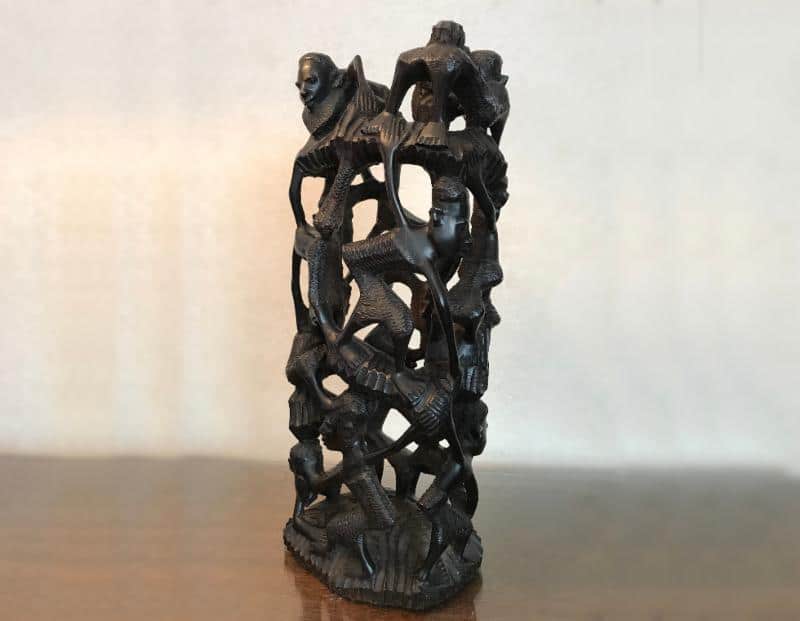Today’s author is Kirsten Levorson, Bega Kwa Bega‘s Acting Director

In the carver’s market in Dar es Salam, I watched skilled craftspeople hack away at a block of ebony, one of the hardest kinds of wood, using only a nail protruding from a stick. The process takes many repetitive motions chipping off small splinters of wood at a time.
One typical kind of carving is a piece called Ujamaa, or the tree of life. Carved from a single piece of wood, it depicts villagers of all ages, one on another’s shoulders, the next rising above. Some of the carved figures hold tools, others cooking pots, another a drum. The carvings depict the interdependence of village life.
Our Bega Kwa Bega [Shoulder to Shoulder] companionship thrives on that model of interdependence. When we recognize and honor the gifts of our companions, we are at our best. We Americans couldn’t experience meaningful visits to our companion village parishes without the Tanzanian drivers who know the way, the translators who enable us to communicate, the generous hospitality of our Tanzanian hosts who provide food, water, a place to sleep. On the American side, we share gifts of resources and sometimes a particular area of expertise.
Whenever my travel groups have included American children and youth, my Tanzanian companions have been especially happy to welcome us. They take the presence and interest of the younger travelers as a sign that this companionship will continue through another generation. Interdependent, sharing our gifts with one another and bearing each other’s burdens, over time, has strengthened our bonds of companionship. To God be the glory.
For the Lord is good and his love endures forever; his faithfulness continues through all generations. For this we give thanks. Amen.
